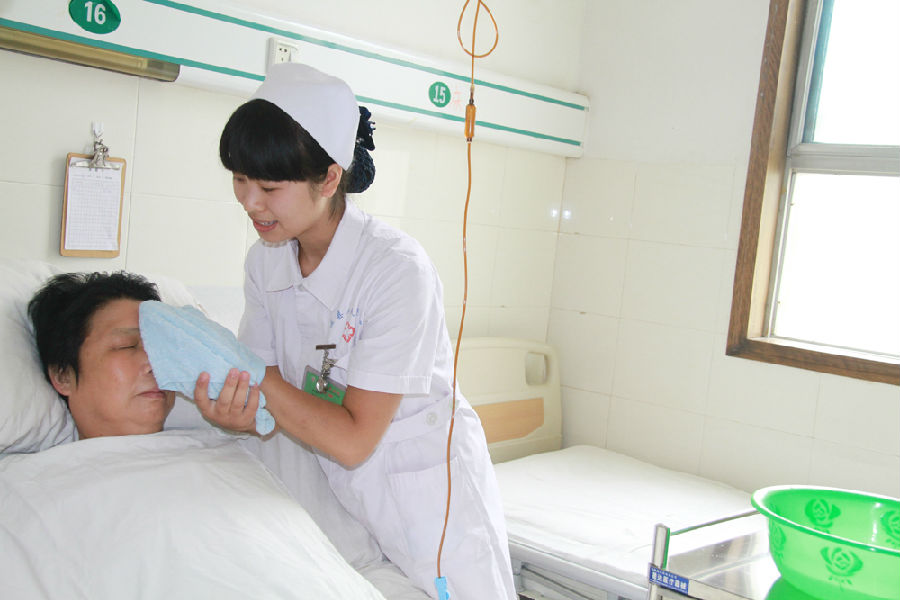Bathing a patient may be done for cleanliness or for specific therapy, which depends on the type of bath.
患者沐浴或是為了清潔或是處于醫(yī)療目的,因沐浴的種類而異。
A physician's order is necessary for baths for specific therapeutic purposes.
醫(yī)囑對于醫(yī)療沐浴來說是必要的。
The extent of the patient's bath and the methods used for bathing depend on the patient's physical conditions and the degree of hygiene required.
患者接受沐浴的程度和方式需要依據(jù)患者的身體狀況以及需要的清潔程度而定。
If a patient is totally dependent and requires total hygienic care, he'll receive a complete bed bath.
對完全不能自理的病人應(yīng)當(dāng)進(jìn)行完全床上擦浴。
For partial bed bath, the nurse only bathes the body parts that would cause discomfort if left unbathed.
而部分床上擦浴只需要護(hù)士對部分長時(shí)間不清洗會(huì)造成不適的身體部位進(jìn)行清潔護(hù)理。

If dependent patients are in need of only partial hygiene, or if self-sufficient bedridden patients are unable to reach all body parts, they will receive a partial bed bath.
不能自理需要部分清潔護(hù)理的病患、具有自理能力的臥床病患如有觸摸不到的身體部位需要接受部分床上擦浴。
The tub bath or shower can be used to give a thorough bath than a bed bath.
盆浴和淋浴相對于床上擦浴的清潔程度更高。
Washing and cleaning all body parts is easier. However, safety is the first concern since the surface of the tub or shower stall is slippery.
也更容易對清洗到全身各個(gè)部位。但是由于浴缸和洗浴間地板濕滑,安全性成為了最大的隱患。
Tepid sponging is used when a patient's temperature is very high.
當(dāng)患者體溫過高時(shí)應(yīng)使用溫水擦拭的方法。
Tepid water is used to avoid the chilling effect of cold water, and to let the temperature come down slowly.
使用溫水是為了避免冷水造成激冷效應(yīng),溫水會(huì)使體溫慢慢地降下來。
Whatever type of bath a patient receives, the nurse should follow these guidelines:
無論對病患進(jìn)行哪種沐浴,護(hù)士都應(yīng)該遵循以下的原則:
1. Keep privacy. Close the door or pull room curtains around the bathing area or bathing the patients expose only the areas that are being bathed.
1.注意隱私。關(guān)門或者拉上病房內(nèi)洗浴區(qū)的隔簾,只暴露患者需要清洗的部位。
2. Maintain safety. Keep side rails up while you are away from the patient's bed side. This is particularly important for dependent or unconscious patients. Place the call ring in the patient's reach if you must leave the room temporarily.
2.注意安全。離開病床時(shí)支起病床兩側(cè)的扶手。這對于不能自理以及無意識(shí)患者尤其重要。如果你必須離開房間,將呼叫器放在患者可以夠到的范圍之內(nèi)。
3. Maintain warmth. The room should be kept warm, since the patient may easily be chilled.
3.注意保暖。注意房間保暖,因?yàn)椴∪撕苋菀资芾洹?/p>
譯文屬可可原創(chuàng),僅供學(xué)習(xí)和交流使用,未經(jīng)允許不得轉(zhuǎn)載












